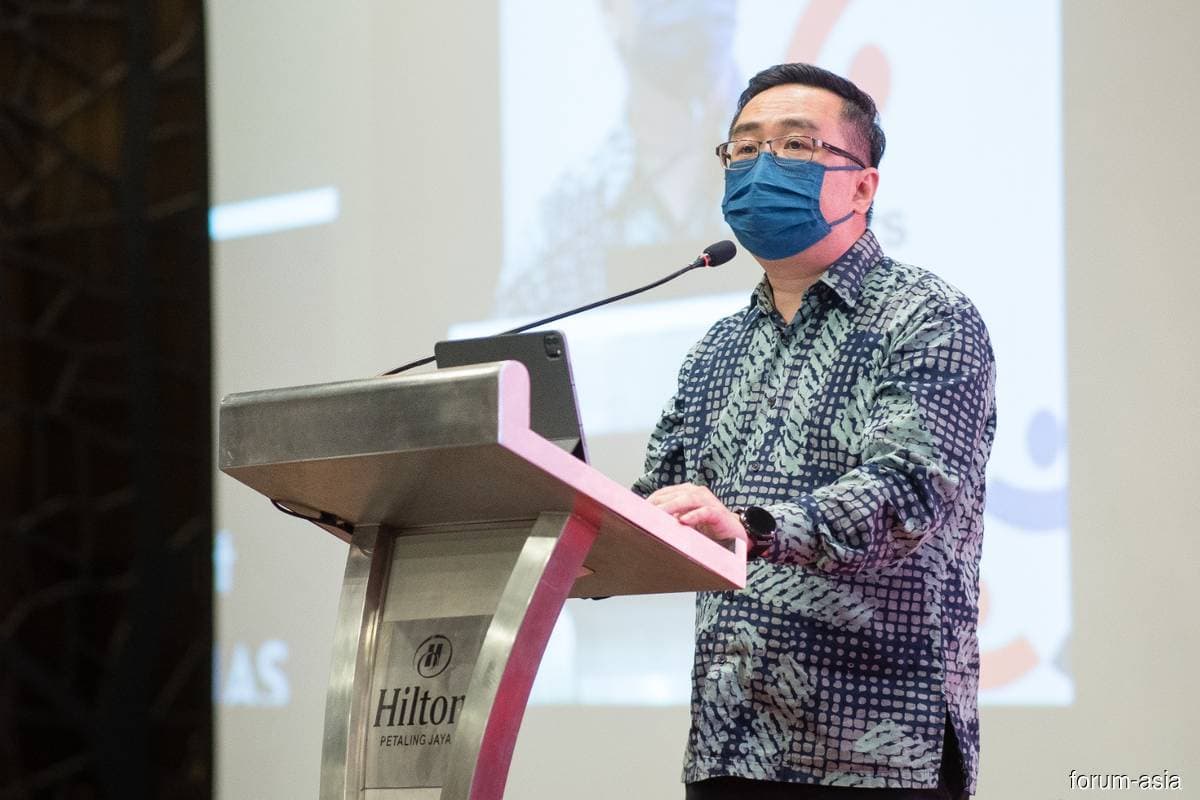
PETALING JAYA (Nov 3): The Asian Forum for Human Rights and Development (Forum-Asia) documented 1,636 cases of violations involving 4,440 human rights defenders (HRDs) alongside their families, organisations and communities, from January 2021 to December 2022, said Forum-Asia executive director Mary Aileen Diez-Bacalso.
She was speaking at the recent 10th Asian Human Rights Defenders Forum held from Nov 1 to Nov 3, which was organised in collaboration with Suara Rakyat Malaysia and Pusat KOMAS.
The violations were across 22 monitored Asian countries, including Malaysia. The exact number, however, may be higher as cases often go unreported, she said.
“Judicial harassment is the most common violation, followed by arbitrary arrests and detention, physical violence, and intimidation and threats. At worst, such cases may result in enforced disappearances, killings and deaths. Other violations include administrative harassment, restriction on movement, surveillance, vilification and abduction,” said Diez-Bacalso.
“On top of that, HRDs grapple with censorship, disinformation and online harassment. Now more than ever, Asian civil society faces tightening restrictions on free speech, press freedom and the right to protest.”
Among all HRDs, Diez-Bacalso said, pro-democracy defenders are at most risk. This is closely followed by women rights defenders and sexual orientation and gender identity rights defenders, who often experience gender-based harassment.
Community-based defenders such as land and environmental defenders, indigenous people’s rights defenders and grassroot activists are the third most affected group at risk of facing violations.
“Most violations were committed by state actors, with the police topping the list of perpetrators,” said Diez-Bacalso.
Reflecting on the data, Chang Lih Kang, Minister of Science, Technology and Innovation (Mosti) emphasised that the government recognises HRDs and civil society organisations for their role in advocating for the rights and concerns of marginalised communities.
“These dedicated individuals and groups serve as the voice of the voiceless, tirelessly working to shed light on issues often overlooked by mainstream society and governments. They act as watchdogs, exposing injustices, discrimination, and human rights violations that might otherwise go unnoticed,” said Chang in his keynote speech.
“Their collective efforts serve as a crucial counterbalance, helping to stop the abuse of power while promoting transparency, accountability and good governance.”
Chang said the government, through Mosti, plans to establish clear frameworks that protect human rights with regards to the use of artificial intelligence (AI) tools and hold those responsible for rights violations accountable.
He said that AI-powered search engines and content recommendation systems can improve access to information, promoting freedom of expression and the rights to access information.
But on the other side of the coin, AI-powered search engines can be used for content moderation and censorship, impacting the right to freedom of expression. Hence, it is essential to have a foundation based on good governance and good conduct.
The rise of technology has also led to an increase in online harassment and cyberbullying, said Chang.
Striking a balance between the benefits of AI and the protection of human rights is a significant challenge for governments, organisations and society, Chang added that, “It is imperative that a comprehensive code of ethics and governance for AI is created.”
